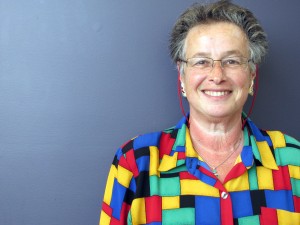Hedy Moscovici was recently selected as a Fellow by the American Association for the Advancement of Science (AAAS) for her research and service to professional organizations. The professor of education at California State University, Dominguez Hills has focused her research on the teaching of mathematics and science at the elementary, secondary, and college levels and the professional development of an international community of teachers. She will be recognized at AAAS’s annual conference to be held in Washington D.C. in February.

Moscovici was also recognized with the Distinguished Educator Alumna Award by the College of Education at Florida State University. A native of Bucharest, Romania, she earned her doctorate in science education at FSU in 1994 and was honored at the university’s homecoming celebration last November.
Moscovici arrived at CSU Dominguez Hills in 1999 after teaching science education and biology at Western Washington University. She immediately felt at home when welcomed by the diverse campus community.
“I felt like I belonged,” says Moscovici. “You can be any person you are and belong here. I loved the campus and the faculty who interviewed me. The students are amazing. They are so rich [in diversity], so opinionated, with very strong and different backgrounds. They know who they are. We have fantastic discussions.”
Moscovici’s love of science and math have propelled her to find the best possible ways to prepare teachers to bring these topics to students in underserved populations. Her extensive research and writings on urban pedagogy include bilingual science education, women in leadership positions in science education, and the use of Theatre of the Oppressed as a tool in science methods classes. She says that one of the solutions to math and science phobia is engaging, inspiring, and exciting students’ minds using these subjects.
“I am really concerned about the science and math phobias of the American population,” says Moscovici. “There is a disconnect between what we know about how students learn and how science and mathematics are taught. We need to build self-confidence and push kids to think. In my experience, I’ve never seen a kid who doesn’t think. So [we need to] use their potential.”
Moscovici has authored and served as primary investigator for numerous grants in the School of Education that benefit teacher training programs. She has served as lead member of the science team in the Quality Educator Grant (QED) at CSU Dominguez Hills; worked on the immersion task force for a System-wide Change for All Learners and Educators (SCALE) grant supported by the National Science Foundation (NSF); and was primary investigator for a supplemental science grant under the Los Angeles Urban Systemic Program. She also has co-directed numerous Boeing grants that have served to support pre-service science teachers’ use of science equipment and materials in their larger CSU Dominguez Hills community while partnering with local schools.
Moscovici cites “cohesiveness among community, schools, districts, universities, and global perspectives” as a path to success among teachers and students.
“Together we can help students believe in their ability to learn math and science,” she says, “by making an effort with co-developing materials, co-teaching, and co-researching. Each in their own field [can] move things forward by being on the same page with collaboration, cooperation, and collegiality.”
Moscovici won the Faculty Excellence Award for Research from the CSU Dominguez Hills School of Education in 2002. That year, she was also recognized as an Exceptional Invited Guest to the Summer Schools Program by the Institute of Educational Sciences in Bucharest as part of the “Education 2000+” grant in Sinaia, Romania. In 2006, she worked as a consultant with mathematics departments and the Ministry of Education and Science in Armenia to develop syllabi and framework for a new mathematics curriculum.
Moscovici serves on the editorial boards of the Journal of Research in Science Teaching and the teacher education section of Science Education. She is a board member of the Association for Science Teacher Education, where she chairs the equity committee. In addition, she serves as board member for Centers for Ocean Science Education Excellence COSEE-West, which is focused on building cohesion between marine biology research and school curricula. She has recently returned from the annual conference of the Association for Science Teacher Education in Minneapolis, where she presented a session on “Theatre of the Oppressed” as a tool for self-reflection in science methods classes: Lessons learned.”
For more information about teacher education at CSU Dominguez Hills, click here.